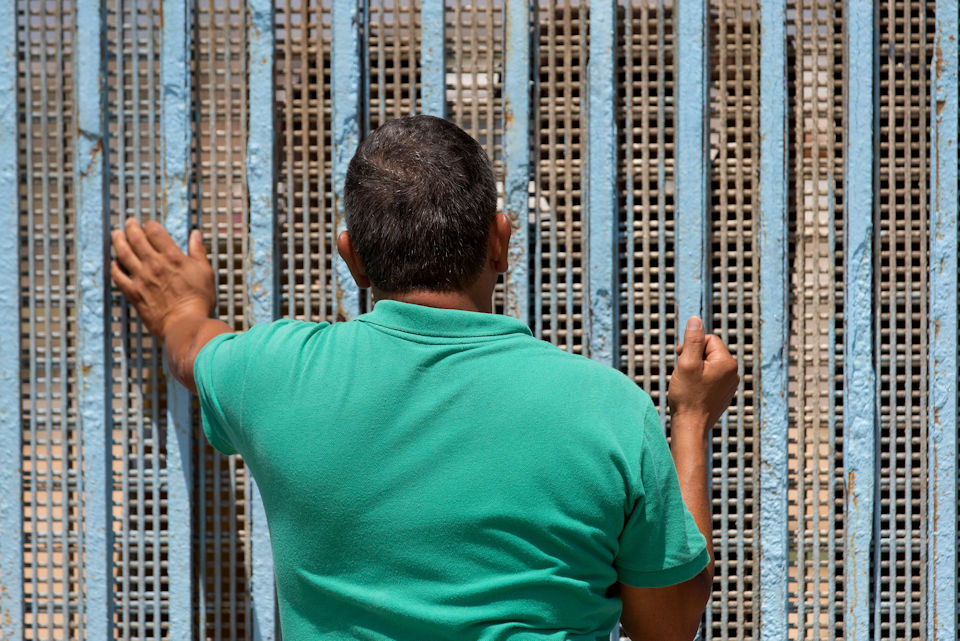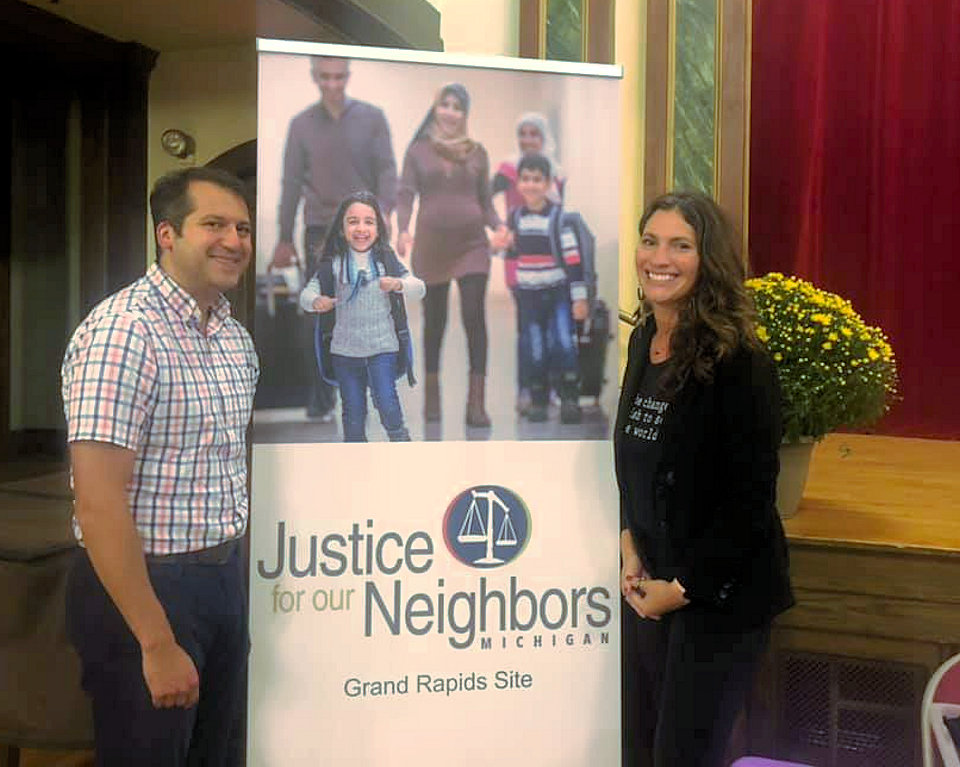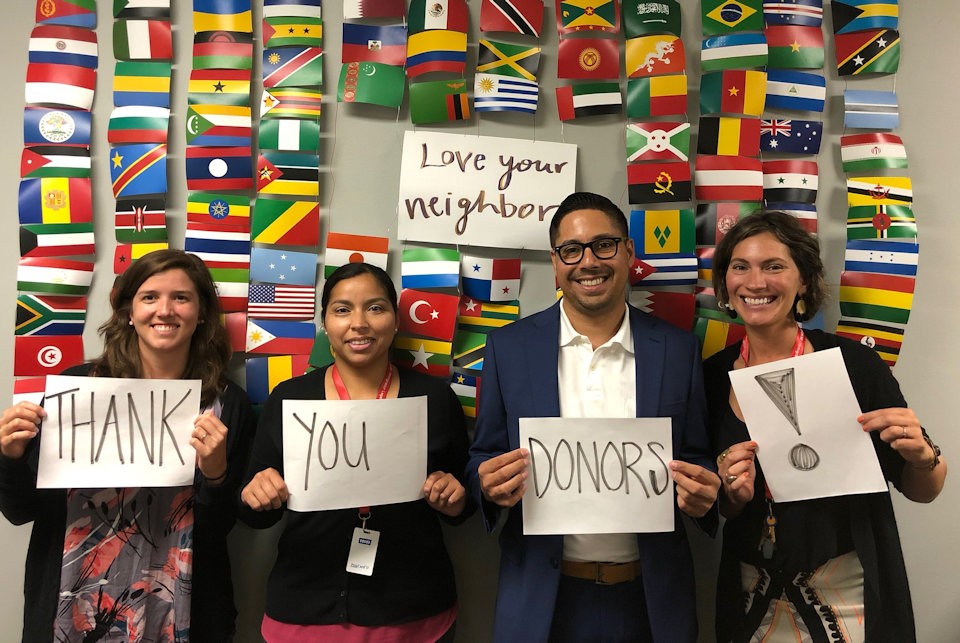While “the wall” at the U.S.-Mexico border is often in the news, there is an “invisible wall” that is also being built, block by block, to restrict legal pathways for those entering this country. Here’s how to help take it down.
REV. PAUL PEREZ
Associate Director for Mission and Ministry, Michigan Conference
Being a migrant in the U.S.A. is becoming more and more difficult.
Changes to policy and procedure are restricting historic, legal pathways for entering the U.S.A and making it more difficult for migrants, already in the U.S.A., to live, work, and secure status.

Immigration attorneys and activists are calling this the “invisible wall.” The four major building blocks of the wall include:
- Reducing Refugee Resettlement: Each year the presidential administration sets a cap for the number of refugees admitted. The refugee admissions cap reduced from 110,000 to 50,000 in 2017. It was lowered to 45,000 in 2018 with only 22,491 refugees actually settled in the U.S.A. that year. In 2019, the cap is set at 30,000. The administration recently announced a cap of just 18,000 refugees for 2020; resulting in a nearly 84% reduction in the nation’s refugee resettlement over three years. In addition, the White House issued an executive order requiring state and local governments to consent to receive refugees. These reductions leave not only tens of thousands of refugees around the world in limbo but also greatly weakens and defunds the U.S.A.’s faith-based and non-profit organizations responsible for refugee resettlement.
- Restricting and Undermining Asylum: Asylum is protection, based on international and U.S. law, granted by the U.S. government to any migrant within the country or at its borders who meets the legal definition of a “refugee.” Throughout 2018, the U.S. Department of Justice, under the leadership of then-Attorney General Jeff Sessions, instituted several policies that made it more difficult to seek and receive asylum. In April 2018, Sessions announced the institution of a “Zero Tolerance” policy which resulted in controversial “child separation” and “child detention.” In June 2018, Sessions, overturning precedent, ruled that fleeing gang violence or domestic violence were no longer grounds for asylum, a change primarily impacting people fleeing countries in Central America. The Supreme Court, in September 2019, ruled in favor of a “third country” or “remain in Mexico” policy and implementation of the Migrant Protection Protocols. Asylum seekers are forced to camp in Mexico and process their asylum cases via video conference in “tent courts” without access to legal assistance along the border.
- Redefining “Public Charge”: October 15, 2019 a new set of regulations take effect which redefine “public charge” as grounds for being denied admission to the U.S. Since 1999 a public charge has been defined as someone who is primarily dependent on the government for subsistence, for example, someone institutionalized at the government’s expense or who received federal, state or local dollars for income maintenance. The new regulations define a “public charge” to include anyone accessing a wide range of public assistance (including Medicaid and SNAP) program for 12 months out of a 36-month period. The regulations also add additional factors and evidence in assessing if someone might become a “public charge” in the future. Many immigrant community leaders and immigration experts fear this change will make it difficult for many low-and-moderate income people to secure legal permanent status (green cards).
- Slowdown and Backlog at the United States Citizenship and Immigration Services (USCIS): A series of policy and procedure changes at USCIS has made even the most routine immigration cases cumbersome and time-consuming. These changes include, but are not limited to, increasing USCIS officers’ ability to track cases into detention proceedings, officers’ authority to reject applications for minor errors, and the additional requirement of in-person interviews for some visas. The results: tremendous backlogs and wait times leaving thousands of people in legal limbo. I’ve learned from JFON attorneys across the state that these changes have nearly doubled their workload!
Over the weekend in Traverse City, I spoke about this “invisible wall” at a Saturday teach-in and preached at Central United Methodist Church as part of a weekend organized by Justice for Our Neighbors Traverse City about the “invisible wall.”
It was one of six events organized by United Methodists across the state, in collaboration with ecumenical, interfaith, and non-profit partners, to raise awareness and encourage advocacy. Justice For Our Neighbors (JFON) Grand Rapids, in August, co-sponsored “Rise for Refuge West Michigan.” In September JFON Kalamazoo hosted a Teach-In/Shout Out education and advocacy event. The Shalom Center for Peace and Justice, housed at Lansing: Central UMC, organized an evening program entitled the “Immigration Quagmire,” and the All-Faith Alliance for Refugees held a summit on Refugee Resettlement in Lansing.
A growing number of United Methodists in Michigan, in the United States, and in the world are dedicated to migrant justice. Our resolution, “Welcoming the Migrant to the U.S.,” puts the commitment this way, “At the center of Christian faithfulness to scripture is the call we have been given to love and welcome the sojourner. We call upon all United Methodist churches to welcome newly arriving migrants in their communities, to love them as we do ourselves, to treat them as one of our native-born, to see in them the presence of the incarnated Jesus, and to show hospitality to the migrants in our midst, believing that through their presence we are receiving the good news of the gospel of Jesus Christ.”

I encourage you to join this growing movement. What can you do? Here’s where you can begin …
Learn: Read the statement by the General Board of Church and Society, “General Secretary Calls Record-low Refugee Cap Outrageous.”
Give: Justice For Our Neighbors MI (JFON) is a United Methodist-related immigration legal services provider with locations in Grand Rapids, Kalamazoo, and Metro Detroit, and Traverse City. JFON MI provides legal representations for asylum seekers, refugee green card applications, and victims of crime, trafficking, sexual assault, and domestic abuse. Give online here. Mail a check made out to Justice for Our Neighbors Michigan to 2000 West 13 Mile Road, Beverly Hills, MI 48025.
Act: Find or form a small group of people who share your passion for migrant justice. A group will keep you accountable and committed. Contact your members of Congress and President Trump at least once a week to share your opinions on the “invisible wall.”
CLICK HERE for many more suggestions on how to Learn, Give, and Act in support of justice and hospitality for migrants.
Last Updated on October 31, 2023

